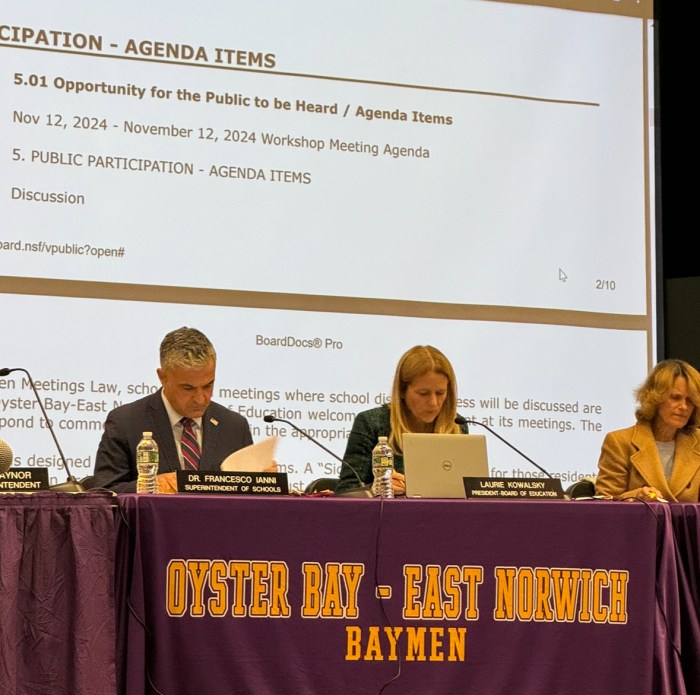 Recent college graduates are remind-ed that the grace period for federal student loans is ending and repayment will begin in November. New York State Higher Education Services Corporation (HESC), reminds borrowers of their repayment options and strategies that can help keep payments manageable.
Recent college graduates are remind-ed that the grace period for federal student loans is ending and repayment will begin in November. New York State Higher Education Services Corporation (HESC), reminds borrowers of their repayment options and strategies that can help keep payments manageable.
Keep Track of Your Loans
Know who holds your federal loans and how much you owe. The National Student Loan Data System (NSLDS) provides a full history of your federal student loans, including your loan balances, names and addresses of your loan holders and colleges attended. Keep an accurate record of both your federal and private loans, and keep your master promissory notes (MPN) and other important paperwork together.
Choose a Repayment Plan
Select a repayment plan that’s right for your financial situation. You’ll have from 10 to 25 years to repay your loan, depending on the repayment plan you choose. Generally speaking, the longer the loan term, the more interest you will pay.
- Standard Repayment A fixed payment amount each month of at least $50, or more if necessary to meet the 10 year repayment requirement. This plan minimizes the total amount of interest you will have to pay over the life of the loan.
- Extended Repayment Available to borrowers who owe more than $30,000 in federal student loan debt, extended repayment allows for a maximum repayment period of 25 years. Payment amounts can be fixed or graduated.
- Graduated Repayment Payments start out low and increase every two years, with full payment required within 10 years. Your minimum monthly payment must cover the amount of interest that accrues between payments.
If you expect your income to increase steadily over time, this plan may be right for you.
Borrowers who are experiencing financial hardships may be able to choose options that can reduce their monthly payment even further:
- Income-Based Repayment (IBR) Available for Direct or FFEL Stafford, Grad PLUS and Consolidation loans; IBR is not available for loans that are currently in default, Parent PLUS Loans, or Consolidation loans that were used to pay off a Parent PLUS Loan. The required monthly payment is capped at an amount that is intended to be affordable based on your income and family size. If you make on-time payments under the IBR plan for 25 years and meet other requirements, you may be able to have the remaining balance of your loan(s) canceled.
- Income-Sensitive Repayment Available only for Federal Family Education Loans (FFEL) loans, the Income-Sensitive Repayment Plan is based on your annual income at the time you begin repayment and must be repaid within 10 years. As your income increases or decreases, so do your payments.
- Pay-As-You-Earn Only loans made under the Direct Loan Program – Direct Subsidized, Direct Unsubsidized and Direct PLUS loans for graduate or professional students are eligible for repayment under Pay-As-You-Earn. You must be a new borrower. You are a new borrower if you had no outstanding balance on a Direct Loan or FFEL Program loan as of Oct. 1, 2007. In addition, you must have received a disbursement of a Direct Loan on or after Oct. 1, 2011. The Pay-As-You-Earn plan generally has the lowest monthly payment and eligible borrowers have up to 20 years to repay. If you repay under Pay-As-You-Earn and meet certain other requirements, any remaining balance will be forgiven after 20 years of qualifying repayment.
HESC’s Loan Repayment Advisor provides a free, personalized repayment plan by answering a few simple questions. No data or personal information is required.
Contact your loan servicer for additional information about repayment plans and options for reducing your monthly payment.
Start Repayment
An electronic debit account allows online payments or automatic deductions from your checking account and may offer an interest discount. Not only will you save time, but you won’t have to remember to write a check every month. Check with your servicer for details.
Create and stick to a budget
Creating a budget will help you live within your income and manage your payments. Meet your “needs” first, then your “wants” as you can afford. Revisit your budget regularly to make adjustments as necessary.
Keep in Touch
Notify your servicer in writing if you change your name, address or phone number. Keep copies of all correspondence in your financial aid file, which should include all paperwork relating to your loan.
What if You Can’t Pay?
Help is available if you are unemployed or have other extenuating circumstances that make it difficult for you to repay your student loans. Ignoring your student loans will create a more serious situation later. Don’t let payment problems get out of hand; work with your servicer at the first sign of difficulty. You may be eligible for a deferment, which delays payment, or a forbearance, which may temporarily suspend or reduce your payment. Or you may qualify for an income-based repayment plan, which may lower your monthly payment significantly.
Managing your student loan obligation is an important step in establishing a good credit history and safe-guarding your financial future.
—Kathy Crowder is the senior vice president of communications at New York State Higher Education Services Corporation.


























